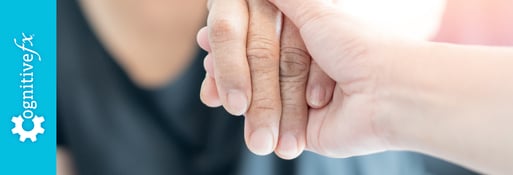Past patient, Anna Empey shares her experiences in a series of blog posts including "Perspective After a Brain Injury," "10 Things I Wish I had Know Before my Brain Injury," and here in this post.
When I first was recovering, I felt like I couldn’t find words to write about my experience. I couldn’t explain either written or vocally how I was feeling or what I was going through. Over time, writing became something that helped me learn how to gather my thoughts and express myself. I focused more on the act of writing something down rather than if it was written perfectly or exactly accurate. Continually writing helped me find ways to get better at it.
I really got into writing after EPIC Treatment at Cognitive FX, a few years after my first injury. I wanted to find a way to document what I was feeling and learning and experiencing moving forward. It was my own words that were a reminder of things I hoped were or would be true.
At that point, I hoped that my brain was working better. I hoped that I could do and enjoy things that I had previously stopped doing. I hoped that I could find a new normal, and that I didn’t need to limit or undermine myself or my capabilities any longer. I now know these things to be true, and it was through writing a few times a week that I could see and feel the truth for myself. My own words showed me that things were changing, that I was changing, and that my brain was working better.
I started out writing 3 things that I was thankful for that day, I focused on writing a couple times a week. Then I started adding things about my day including what I did, what I felt, and what I learned.
When I journal now it looks something like this:
Today I am thankful for:
- That I found my car keys after only looking in a few places.
- A smile from a stranger.
- Microwaves, so I don’t have to eat my lunch cold.
Today I:
- Finished all my neck and shoulder stretches.
- Made my bed.
- Read a book for a few minutes.
- Made dinner.
- Talked with one of my friends on the phone.
Today I learned:
- Sometimes we all need space and time to process things around us; even those who haven’t been injured need this support.
- That drinking enough water can help a headache go away.
- Taking breaks at the right time, and taking multiple breaks a day helps me have more energy throughout the day.
Today I felt:
- Unsure
- Happy
- Courage
- Hope
- Tired
Today I thought deeply about:
How do I use the feeling of fear to encourage me to take an action that actually helps me move forward?
As I looked at each of these aspects over time, my answers started to change. The activities I was doing changed, my emotions changed, and I could see I was making progress and learning new things each day. This practice also shifted my mindset to focus on the small victories. Helping me see and believe that even little steps towards progress are more important than huge steps to progress.
There are many different types of journaling that can be helpful for recovery. Writing in and of itself is something that can help you find new words and explore ways to express yourself. For me, it was a record that helped me see and find changes over time from my own perspective.
For more ideas on journaling we encourage you to check out this article about journaling for recovery here. There is also this article here that talks about 10 ways to journal to aid in healing and growth.






